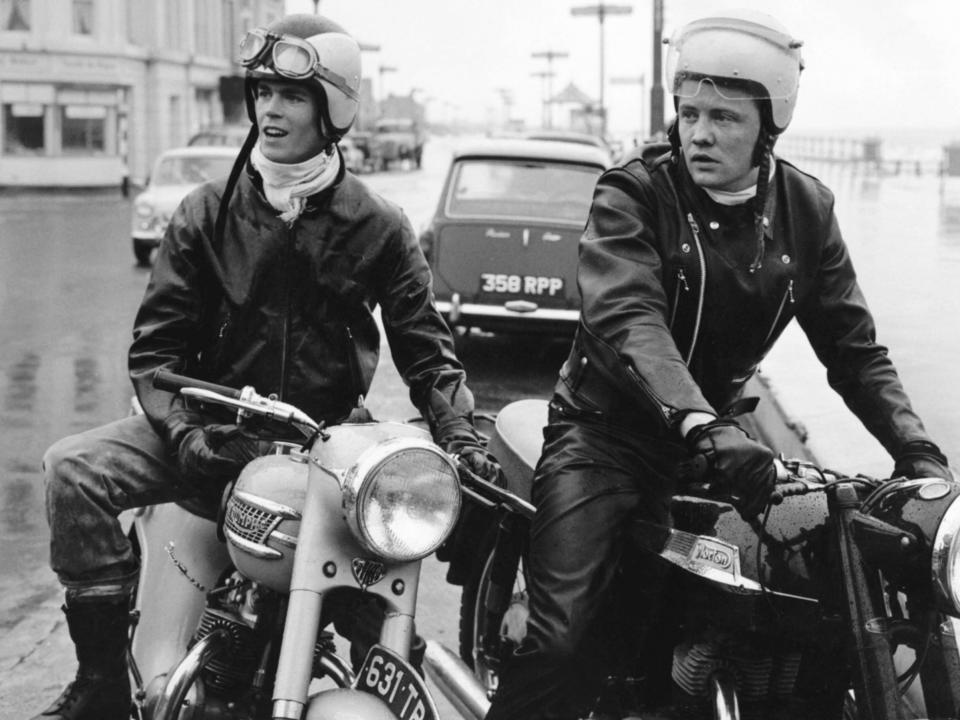Dudley Sutton: Actor known for his roles in ‘Lovejoy’, ‘EastEnders’ and ‘Skins’
“Tinker was important to me because I’d always wanted to do something that was gentle and tolerant and easy,” said the actor Dudley Sutton about his most famous role, as loveable scoundrel Tinker Dill in comedy drama Lovejoy.
Sutton, who has died aged 85, was a mainstay of the successful BBC show alongside Ian McShane’s wily antiques dealer, but his eccentric career wasn’t always so “gentle” and he “always enjoyed being in things that was having a go at the established way of things”.
Sutton was born in Surrey’s Kingston upon Thames in 1933 and educated at Lifton Park boys’ boarding school in Devon. His Irish father dealt in secondhand cars and he had two brothers.
After school he joined the Royal Air Force as a mechanic, but by the age of 22 he was already “incredibly bored” so he enrolled in the station’s amateur dramatic group to relieve the tedium. He was so adept at performing that when he decided to leave, after four years of service, the RAF’s education officer confidently informed him “you’re going to be an actor”. So, from there, Sutton went to Rada, where he studied for five years and where he developed his love of language and the underground scene around Soho.
In 1961 he married US actress Marjorie Steele, who had starred in the TV series Martin Kane, and had previously been married to wealthy producer Huntington Hartford. Sutton and Steele had one child together, a daughter, before divorcing in 1965. In the same year, Sutton secured the title role in the first production of Joe Orton’s black comedy Entertaining Mr Sloane, which was directed by Patrick Dromgoole and also starred Peter Vaughan. Sutton said of Orton that “he was sympathetic, witty and mercurial, I loved the quickness of his mind and he wasn’t pretentious”.
Sutton, who was never shy of taking on a challenging or controversial role, played a gay biker in Sidney J Furie film The Leather Boys (1964). He said of the role: “My involvement in the Leather Boys was because of my sympathy towards the predicament of homosexuals at the time and I wanted to play a gay man who wasn’t camp.” He even had a heated row with a producer who had complained he wasn't camp enough.

Sutton’s love for the Soho nightlife and late-night boozing consumed quite a bit of his time in the mid-to-late Sixties. Though he found time in 1966 to perform in Tango, a West End production directed by a young Trevor Nunn. He also starred in two long-forgotten British films, Rotten to the Core (1965), again alongside Peter Vaughan, and the thriller Crossplot (1969), starring Roger Moore.
It was the maverick film-maker Ken Russell that revived Sutton’s floundering film career. The British director cast him as Baron de Laubardemont in 1971’s suitably controversial The Devils, which starred Oliver Reed as a doomed Roman Catholic priest and was banned in several countries for its violent and sexual content. Of the fuss about the The Devils, Sutton remarked: “I’ve always believed that censorship is a great evil. I’d rather try to understand all extremes of human behaviour because we are all human.”
What followed was a succession of movie cameos, most notably in David Greene’s Madame Sin (1972), which starred Bette Davis and Robert Wagner, Blake Edwards’s grubby The Stud, in which he played several characters including Randy Warpshot, and the rather lamentable The Pink Panther Strikes Again (1976). Sutton made more of an impact on the small screen, appearing in The Sweeney (1975), Porridge (1976) and George and Mildred (1980). The Eighties would prove, arguably, Sutton’s most fruitful decade, starting with a major role, as Oleg Kirov, in the sublime Smiley’s People (1982) before appearing in Alan Plater’s exquisitely eccentric and droll series The Beiderbecke Affair (1985), which spawned The Beiderbecke Tapes (1987) and The Beidebecke Connection (1988). He was perfect for the role of the amused yet jaded teacher Mr Carter.
The decade also saw him undertake his most cherished role: that of bow-tie sporting barker and tout Tinker in the immensely popular Lovejoy (1986-1994). Sutton managed to inject a whiff of peculiar mischief to this gentle comedy drama, but his innate rebelliousness couldn’t be suppressed for long. In 2003, inspired by a rum quotation off the internet (“every time you masturbate God kills a kitten"), Sutton fashioned a comic piece, Killing Kittens, about “a young man’s emotions and feelings, from the moment he’s a baby tugging at his cock onwards”. Sutton described Killing Kittens as “a mixture of salacious verse and torrid prose". "I’m not trying to offend people," he added. "I just want to say there’s a joy in ‘it’ despite the terrible Victorian condemnation."
The show was performed to some success at the Edinburgh Fringe, and he followed it up with a second autobiographical show, Pandora’s Lunchbox, in 2006. In between, he appeared in 16 episodes of EastEnders as conman Wilfred Atkins and in Nick Love’s Football Factory as D-Day veteran Bill Farrell. Later he had a small part in Channel 4’s Skins (2010), played the role of Eric, alongside Honor Blackman, in the absurd Cockneys vs Zombies (2012), and starred in 19th-century drama Tin (2015). And in 2017 he made a suitable impression – he always made an impression – in the video for singer-songwriter Tom Chaplin’s “Midnight Mass”.
Sutton, who was married four times, is survived by his daughter Fanny and his sons, Peter and Barnaby.
Dudley Sutton, actor, born 6 April 1933, died 15 September 2018

 Yahoo News
Yahoo News 

